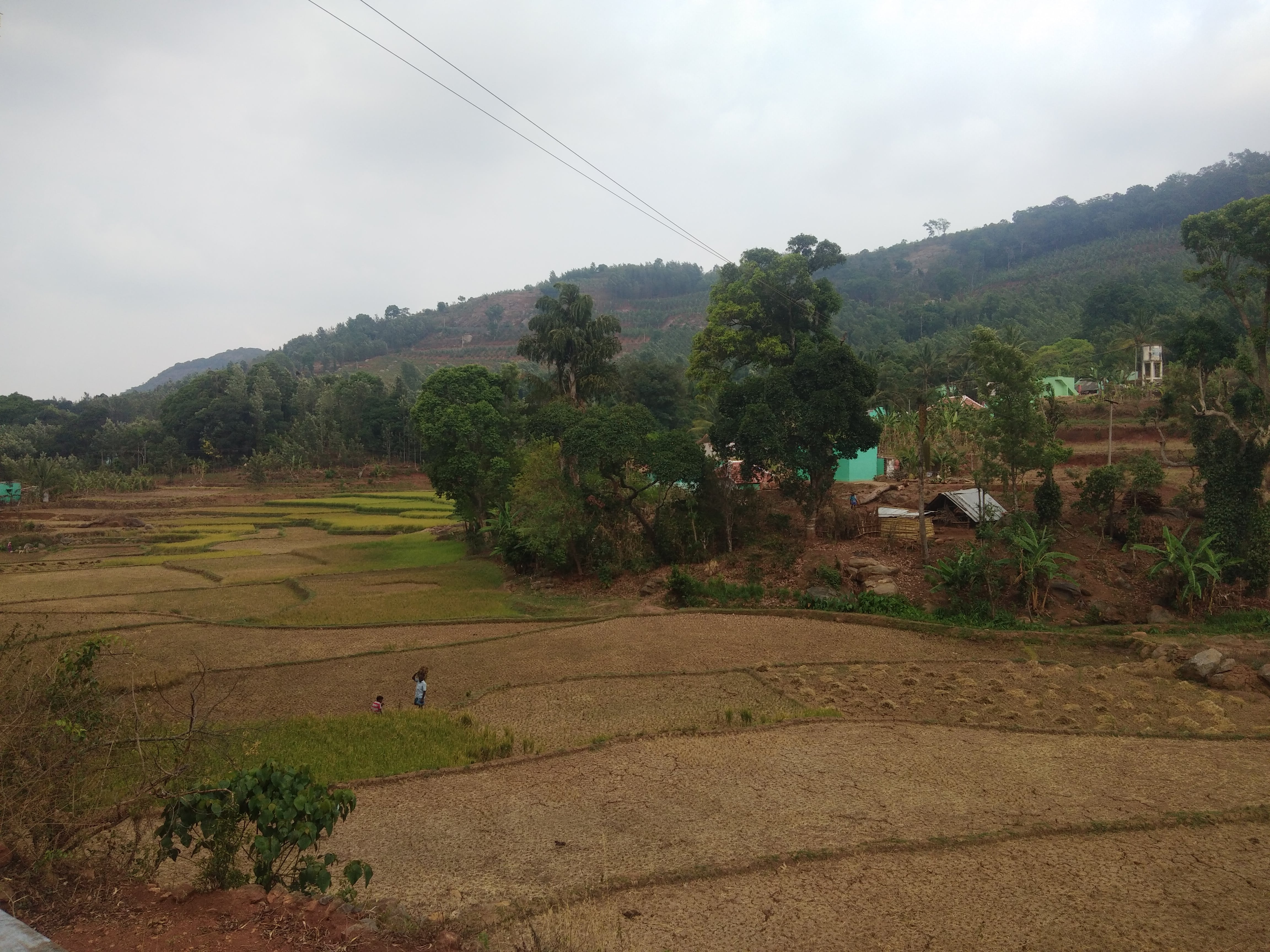
A TN tribal group’s struggle to get land in core tiger reserve
Kadar tribals recall their two-year tussle get the land deed to build their homes in Anamalai Tiger Reserve’s Theppakulamedu area

Rajalakshmi Jeyapal, a mother of three from the Kadar tribe, heaves a sigh of relief as she holds the title deed for 1.5 cents of forest land in Anamalai Tiger Reserve (ATR) in Tamil Nadu’s Coimbatore district. She’s now happily busy cleaning the land at Theppakulamedu to build a hut. She has received the deed after a two-year-long struggle.
A Kallarkudi resident along with 22 other families, Rajalakshmi was forced to relocate to a tea estate’s quarters at Thaimudi in Valparai in August 2019, after landslips triggered by heavy rains had damaged their settlement.
“We had initially built huts in Theppakulamedu, which is about 2 km from our settlement after our houses were damaged. But the Forest department removed it and asked us to temporarily reside in tea estate quarters, which is over 5 km away from our (original) settlement. We agreed to it and three to four families were living in a house as only six houses were allotted for us. We had absolutely no privacy,” she said.
Hardships endured
Even though the temporary accommodation had water connection, the quality of water was so poor that many of the residents — especially children — fell sick, and the toilets were also in bad shape, she added.
Also read: Are elevated roads causing floods in Tamil Nadu?
Since they were staying miles away from their farm land, Rajalakshmi and the others were forced to walk more than 10 km a day for the commute to and from their farmland in Kallarkudi. The tribals, who are farmers by profession, have been cultivating pepper, banana and coffee, among other crops.
“As the path to our settlement is very steep, we cannot use any vehicles. Also, we have to cross three rivers to reach our settlement. We had to leave our children at the quarters as we cannot take them along every day,” said another resident, S Anish Kumar.
“As life at the quarters was extremely difficult for us, we wanted to go back to the forest. But we cannot go back to Kallarkudi as it got damaged in the landslips and we were worried that the situation might worsen during the next rainfall. So, we had been requesting the Forest Department to allocate alternative land to us at Theppakulamedu for more than a year,” he said.
Explaining that they had been practising shifting cultivation until the Forest Rights Act, 2006 came into place, Anish Kumar said that they had once resided at Theppakulamedu. “Before 2005, we had been practising shifting cultivation and harvesting paddy and maize. But, once the Act was introduced, we stopped it and settled permanently at Kallarkudi,” he added.
“Even though we had passed a resolution at the gram sabha, the Forest Department had been refusing to allot us alternative land. It had been asking us to go back to our traditional settlement or leave the forest itself,” he recalled.
Protests and results
When the tribals staged a protest in August 2020, the district administration intervened and assured them that immediate steps would be taken to fulfil their demand. But, as an entire year passed and nothing happened on the ground, the tribals staged another protest for days together in October 2021. Finally, the Forest Department relented and agreed to meet their demand.
“Almost a month after our protest, 21 families received title deeds for 1.5 cents of land each at Theppakulamedu from the Minister of Electricity, Prohibition and Excise, V Senthil Balaji. Now we have set up a shed and all the families are living together. We have started cleaning the land to build huts,” he added.
Is there a provision to provide alternative land within a tiger reserve?
MG Ganesan, Deputy Director of ATR, said: “As the alternative location – Theppakulamedu – also falls within the limits of a single grama sabha, we have provisions in the law to issue title deeds to them. The alternative location is just 2 km away from their settlement. It is in the core area of the tiger reserve.” Settlements that are a few hundred metres apart fall under the same grama sabha.
Proof of residence
“Under Section 13 of the Scheduled Tribe and Other Traditional Forest Dwellers (Recognition of Forest Rights), Act, 2006, people had to show at least two of nine pieces of evidence to prove that they had resided in the forest for at least three generations. The tribals have shown the burial ground and temple as proof. This apart, the oldest person in the settlement has given testimony that they lived there before 2005,” he added.
Theppakulamedu is a better location for them as they moved towards the forest boundary and it is am almost flat and safe terrain unlike their traditional settlement, he added.
K Kalidas from Osai, an environmental organisation, said that tribals and other forest dwellers have the right to reside inside the forest under the Forest Rights Act, 2006. “The core area of the forest does not mean that it will not have human habitats at all. It will just be minimum in number. It is a sensitive area,” he added.


